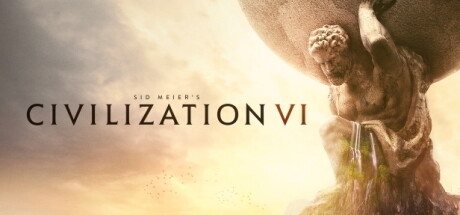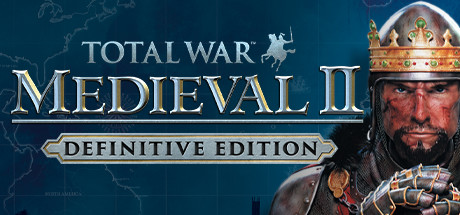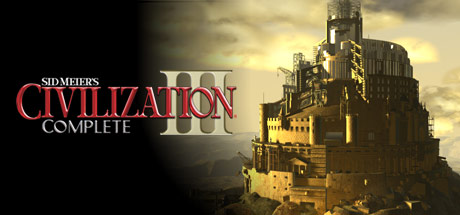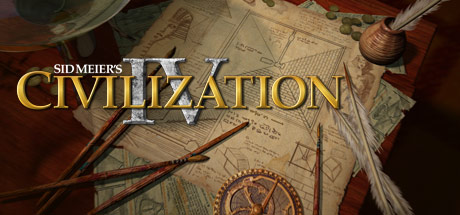Spielzeit:
43211 Minuten
[h1]Civilisation (VI) revisited - Ages Of Mankind[/h1]
there have been 7 world wonders known until 1991, when the 8. was revealed. Civilisation did not only change video games forever, but the world. its inception popularized more than a debut genre (4X): a new understanding of more than simply gameplay - a contemperary perspective on mankinds history and therefore (its) presence and future. with Civilisations gamification history became accessible, as it staged the player in global responsibility for any chosen nation - how would ones empire react in a Triple Entente situation en route WW1? ofc history is too complex to simulate in a video game, but its process essentials - the eco-political infrastructure, warfare, environment etc. - can be modeled at least simliar, if not authentically. although Civ wasnt the first game to conquer the globe, its debut not just re-defined strategy (which originated of tabletop wargaming), but recontextualised history and mankind itself. becuz there is no good or evil nation, no other narrative than play(er agenda) the world. the subject of history became its (virtual) object, history was no longer reduced to abstract and passive expertise, but live, to be decided by the player.
although the original Civ was focused on (military) domination, within the next 30 years it adapted not just more victory conditions, but consequently reflected on the foundations to refine, if not redefine gameplay by Sid Meiers 33/33/33 sequel-formulae. which required every iteration to (33%) transport (the signature characteristics), (33%) improve (those) and (33%) innovate. the missing, unmentioned, the very last percent may feel spiritual, but is not an afterthought, cuz its the basic, the major maxime. (so probably its the first, the surpreme percent?)
this rare brilliance of (almost) every Sid Meier title, which highlights, that gameplay is more than the sum of its elements. its this very same spirit Pirates!, Railroads, Colonization etc. inspires - Civ focusses the player experience, the journey (adventure?), its (and by that the players) potential, opportunities and perspective, a self-reflection in the context of mankinds cultural evolution - its immersion almost creates a unique, original, self-contained reality.
so Civ VI isnt just an improvement to the series legacy, but maybe the final, the ultimate, the absolute, the definitive edition of 30+years grand strategy. as it feels like any additional gameplay elements would be simply superficial, if not unauthentic (though as always there r volumes of great mods <3). there may be - rightfully - many critical arguments, like ofc the AI (lol), the comicesque graphx, the policy card (!) system, the districts or nation-agnostic governers, but the gameplay is so transformative, so brilliantly smooth, it transcends into a meditation, almost a zen-like experience.
Civ never required Hearts of Irons "realism", the fantasy of Age of Wonders (although Civ IV Fall From Heaven II is must-play), Master of Orions techno-imperial cosmic scale or the adventure(ness) of Heroes of Might and Magic. Civ was always about the grand scheme(s) of cultural evolution (aka history), the geopolitics, technology, trade, opportunity and risk, grandeur and misery - about mankind itself (which tbh is either - as much for individuals as much as for nations - progress or extinct). Interestingly, Civ never was about ideology, although climate awarenesss has been a basic element of its statement on humanity since the original (which Civ VI DLC Gathering Storm evolved to a new level) - history is yours, as long as u respect the planet.
Civs surpreme signature characteristic may seem contradictive, but is supportive to grand strategies overall complexity - a genuine simplicity. which translates into accessibility and allows depth to develop rather organically than technically. eg in Civs history there never was any menu-overkill, its systems always were intuitive, even in its worst iteration (Civ IV "stacks of doom") not just combat was comfortable.
so convinience has been a major attribute to drive player agenda, with the elegance of a Point-And-Click adventure everything in Civ is accessible by one click, even the encyclopaedia (right click on any object), as much as vital informations, like ressources, city-status, -pop, -production etc r displayed directly or like tile specifics via mouse-hover - a golden standard not exclusive to game design. also the automatisation of micromanagement, eg city-governance (with specific focus options like prod, pop, science, gold etc), research- and production-queues, even unit-movement can be queued.
which greatly supports the vast replayability. a single session may turn into weeks of marathon, almost everything is as customizable as it invites to explore its huge variety of nations, victory conditions, maps, game modes and speeds, a simple randomisation of the technology trees alone means a different game.
ofc there r many, many more signature characteristics, like Turn-Based, exploration, diplomacy, pop happyness and war weariness, historical (and current) nations, nukes, the ages cultural progress from the antique to modernity, but my personal favorite always have been world wonders.
wonders rnt like the icing on the cake (for me), historically they r the cake - beacons of almost timeless history. cuz what remained visible from ancient egypt truout the millenia became more than a tourist attraction, but an inspiration. from Stonehenge to the International Space Station (dont argue, its not simply a wonder, but a political miracle), wonders represent mankinds historical aspiration to last, if not overcome time itself. wonders r a statement of humanities relentless ambition to push beyond any given limits (esp in consideration of the usually atrociously inhuman labor conditions).
these core features all have been meaningfully refined in decades of distillation, eg the grid-based tile system became hexagonal in Civ V, not just a stragegical, as much as a tactical improvement, but an increase in overall accessiblity by the simple addition of two more directions.
improvements though may be Civ VIs weakest 33%, although religion became less painful and complacent, trade more meaningful, diverse and integrated, Barbs and City States (boni) were reworked. Civ V annoying technological and cultural progress systems pop dependencies were lifted (which forced "tall" gameplay) and received some further enhancements, like the voluminous, but yet granular (p)impact of the revised culture tree and the controversial Eurekas.
[...]
As the original 4X, as the genres supreme directive, Civ doesnt have to and neither cant redefine grand strategy - cuz it already is the definition. It is as much allowed as much as expected to be conservative. it doesnt has to be experimental to retain its integrity, it doesnt need Solaris intergalactic bravado, Total Wars opulent faction asymmetry or worse Humankinds "narration".
Even if the majority of Civ VI innovations push the limits of the genre in a considerably Sid-Meier-way - decent and elegant, as Civ is THE 4X - a few seem suspectfully technical.
[...]
(*it lags the gravitas of national doctrines)
Civ VI may be the last historical release of the series, as it feels like there isnt much more capacity for innovation without any fatal erosion of its integrity. which doesnt exclude, as many mods verify, potential for improvement, but any additional system, game structure or mode could be the lethal mint leaf, not exclusive to gourmets.
eg an addition of Crusader Kings lineages would only depersonalize the players historical role in Civilisation, as it would not just make leadership (figures) replaceable, if not expendable, it would detach the player from their (chosen) nation.
[...]
Civ is more than a game, its an attitude.
👍 : 0 |
😃 : 0









